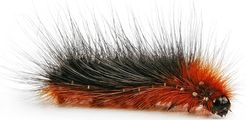Instrumente und Strategien zur Förderung des nachhaltigen Konsums Evaluation und Optimierung
Since the Rio Conference many initiatives have been taken to foster sustainable consumption. How-ever very few is known about the efficiency and effectiveness of these measures. In this study they are evaluated regarding to their potential to foster sustainable consumption patterns. Future op-tions are discussed.
The research focuses on three areas of consumption: nutrition, heating, and washing. Trends over the last 20 years are identified addressing sustainable consumption and influences of instruments such as direct-regulatory instruments, voluntary agreements, and consumer education and informa-tion are analysed. Information sources used comprised official statistics, secondary sources such as research studies and reports and primary data of guideline-based interviews with more than 45 rele-vant actors.
As a result of the specific instrumental mix chosen in the past we identified a continuous develop-ment of more efficient products leading to more sustainable consumption in certain domains (wash-ing, heating), whereas opposite trends like the growing amount of household equipment have not been influenced. Consumer education and marketing support had been successful with respect to information about products, but exerted very little influence on culturally bound variables of con-sumers behaviour such as washing habits, nutrition and heating behaviour. Government measures are of high importance with regard to the safety of products (nutrition, chemical products) and measures fostering sustainable system innovation of products and services. Sustainable consumpti-on behaviour, however, is influenced most effectively by large co-operation of relevant social actors, by the development and communication of explicit policy goals as well as the resulting specific mix of instruments.



